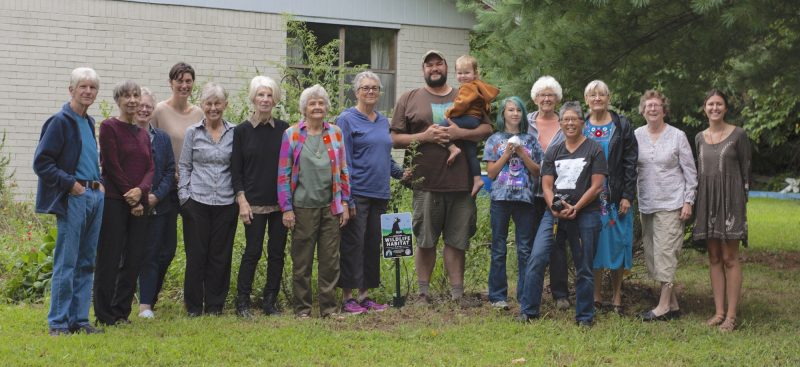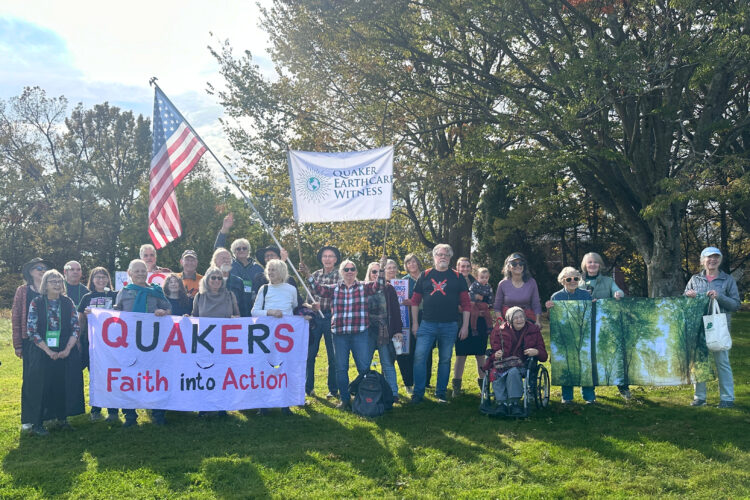Birds, Bees, and Butterflies: Monthly Meeting in Fayetteville, Arkansas Creates New Habitat for Wildlife

By Eric Fuselier.
LAST YEAR FAYETTEVILLE Monthly Meeting’s Quaker Earthcare Witness Committee started a project to improve the grounds at our meetinghouse, the OMNI Center for Peace, Justice & Ecology, to include more habitat for wildlife, with the ultimate goal of the Center becoming certified as a wildlife habitat by the National Wildlife Federation.
Many of us in our monthly meeting appreciate the benefits that pollinators provide to both the ecosystem and to our society, so we decided that we wanted to do our part to help provide them with the resources they need to live in the urban environment surrounding our meetinghouse.
From the beginning, we involved the children from our First Day School by having them conduct an assessment of what wildlife habitat was already present at the OMNI Center, as well as what habitat we were lacking.
For the first stage of our project, we replaced a section of the lawn on the south side of the building with a native wildflower garden that, in addition to the benefits it would provide for pollinators, would also provide thick, dense cover for small animals seeking shelter from predators. Friends planted native wildflower species such as black-eyed Susans, firewheel, lanceleaf coreopsis, plains coreopsis, purple coneflowers, partridge peas, butterfly milkweed, and American beautyberry.
Friends also installed a nesting box for bluebirds, feeders containing birdseed and suet, and a bird bath. Members of our monthly meeting and our greater community donated many of the items.
To get the work done, we periodically organized workdays and invited our meeting to help plant the native wildflower species and install the bird boxes and feeders, and then maintain the area and keep it free of invasive species. Removing the non-native and invasive species seemed to be constant work, but it was important to not let these species out-compete the native plants.
We also started a composting project next to the wildflower garden. A local community member donated the barrel and offered us a free composting workshop. Now we are bringing our food scraps to add to the composting barrel and will purchase a second one soon, thanks to the demand.
We reached our goal and obtained our wildlife habitat certification by the National Wildlife Federation last August. The wildflowers have been providing a beautiful a show of colors all growing season, as have the birds, butterflies, and other pollinators.
Almost as soon as we started planting native vegetation and installing the bird house and feeders, we noticed a significant increase in the number of pollinators that began visiting our new wildlife habitat. We started keeping a log of all of the species we have seen and have learned so much more about the natural history of our area by doing so. It’s been an exciting project for everyone involved.

